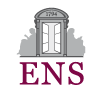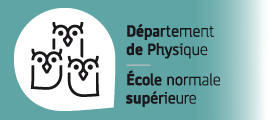Advanced Methods in biological physics and soft matter Advanced quantum mechanics Atoms and photons Biophysics Condensed Matter Theory Fundamentals of nanostructures General Relativity Lie Groups, Lie Algebras and Representations Magnetism (...) | ↦ Read more
 Research laboratories
Research laboratories



 The Department of Physics
The Department of Physics

 Program, courses and calendar 2022 - 2023
Program, courses and calendar 2022 - 2023 

